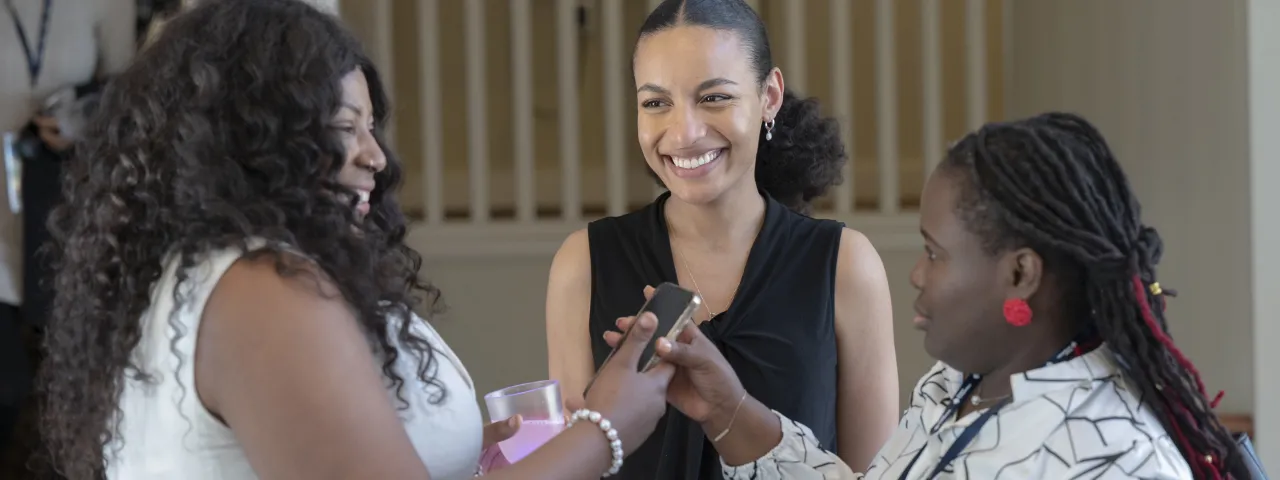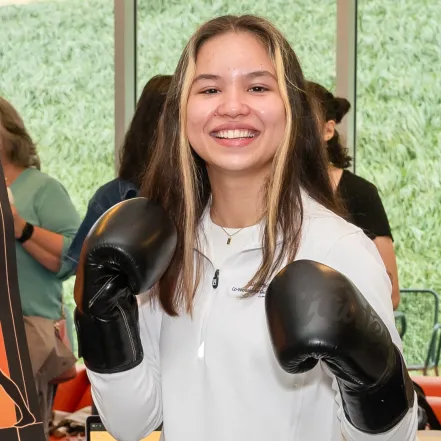Activities
We approach curating activities, as a gardener approaches nurturing their plants. Financial wellness is at the root of what we do. With us, you’ll learn the tools you need to successfully meet your life goals, even during times of uncertainty. Your world-class liberal arts education at Smith College is the foundation that our innovation programming enriches, ensuring your growth and cultivating your creativity, resilience, and resourcefulness. Through your experiences with the Conway Center, you will flourish, whether you want to become a leader, a change maker, your own boss, or anything else—the possibilities are truly limitless.
Joypalooza: A Justice Celebration
The 2025 Smith Co-Innovate for Change: Justice Challenge culminated on April 11 in a celebration of student ingenuity, where 18 teams showcased their economic, education, environmental, or health justice project in the hopes of being awarded a share of the $50,000 award pool.
Winners
About the Challenge
What’s Happening
“Boxing brings me joy; it helped me discover my own identity, rather than letting other people dictate it for me. Through this project, I have learned a significant amount about team dynamics and in turn, much about myself. It has shown me that setting boundaries and communicating directly are not negatives—they help to foster positive relationships.”
Stay Connected
Sign up for the Conway Center’s weekly email blasts to receive information about events and activities, programs, and trivia questions.


